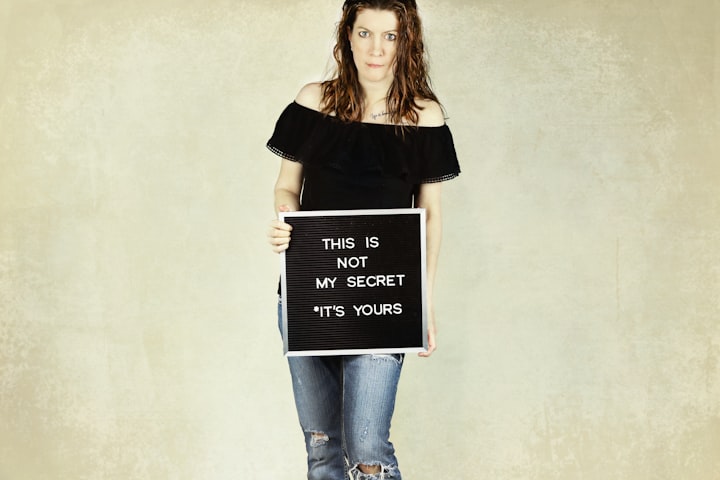Yes, Britain is Racist and I am tired of talking about it
The last year has been incredibly hard for me and many black people. I have felt so many emotions: Rage and anguish and sadness and frustration.

One of the most frustrating things that I found is the fact that people keep on telling me that racism doesn’t exist as much in the UK or that things are much better off here. As a black person, I know that racism exists in the UK and it is not any better.
I came to the UK when I was very but even from there, I have experience racism almost constantly. There are so many things that I could talk about in this article. I could talk about when I was in year nine and a guy came up to me, not even a friend at the time, and he said: “I have a joke for you, what’s the difference between a black man and a bench?” I said, knowing the answer was going to be racist: “What’s the difference?” He replied eagerly: “A bench can support a family!” I could spend this entire article discussing why that joke was so incredibly racist but suffice to say, that student had my dad and he knew my dad had been there for my family and yet he still thought was a hilarious joke to say, even though I was one of the only black people in the class.
I can talk about being in the sixth form and how during Black history month there was no plan assembly or speech, almost like it wasn’t important enough to talk about, although pretty much every other holiday and historical event had an assembly. I decided to write my own speech for assembly and do my own assembly black history month. After which I was then asked by the teachers to lead sessions on black history month.
I came to the UK when I was very little but even from there, I have experience racism almost constantly.
I could talk about being in a history lesson, and having my history teacher tell the whole class that he worked as a tutor before he became a history teacher and he had many interesting stories, such as the Russian family he worked for obviously being mob-related and him making a very casual comment about how bad and corrupt Nigerians are and only stopping once I said I am Nigerian. He then proceeded to tell me to wait for him after class, as he needed to talk to me. During the conversation, he begged me not to tell anyone about the incident and not tell anyone I think he also apologised, but mostly I just remember him telling me to stay quiet about it.
I could talk about my gap year, one of the worst years of my life, being at a Christian year out program and facing racist and homophobic microaggressions so often I wanted to leave.
I could talk about the first day that I was at university, chatting in a group in the common room when someone asked me how I was enjoying being at University in England as an International student. I have a very British accent, so British that when I speak my native language of Yoruba my relatives laugh at me, and I was talking this entire time so I asked what about me made them think I was an international student. Was it the fact that I was black? Interestingly enough my friend Anna was with me at the time and she is an international student, she is from Spain, and is white and wasn’t asked anything about her ‘international experience’.
I asked what about me made them think I was an international student. Was it the fact that I was black?
I could talk about enrolment day at uni and how when I entered the David Ross building the organiser in charge of splitting the lines between international and British pointed anyone, and I do mean anyone, who wasn’t white to the international line including me. I had to tell him that I am British and I have a British passport. There was a group of black people who were slightly behind me and as they entered the building they were laughing and joking with each other. They all had very clear and distinct London accents. Despite this, the organiser in charge of separating the lines repeatedly waved them to the international student line. They ignored him until he insisted, and they had to explain to him they were not international students.
I could talk about the lovely morning of 13 June 2019 where I woke up to a message from Daniel J Hewitt calling me a ‘filthy slave’, as he was upset that I had made comments against a pro-life society on campus. He then proceeded to insist that he was not racist and that I was ‘pulling the race card’ when I said that he was being incredibly racist.

But what I really want to talk about is an incident in 2018 where I was assaulted and attacked in a racist and homophobic hate crime while trying to defend one of my friends from being raped. It remains the scariest night of my life, and I wrote an open letter about my experience. At points, I genuinely thought I was going to die. The attacker called me multiple racist slurs as well, and I tried my hardest not to let it show how much it affected me. But it did. my attacker felt able to say to me “Go on call the police. Who do you think they’ll believe? Me or a nigger?” He felt confident his whiteness would protect him. Luckily it did not, and he was arrested.
These are just incidents of racism that happened to me, and this list is not exhaustive. It is increasingly frustrating to see people paint racism as a victimless crime, a simple insult or case of hurt feelings. When celebrities or influencers are revealed to have a racist past people continue to defend them saying, they were young, or it was a long time ago. No matter how young a person is when they do or say something racist, that doesn’t stop the effects of that racism. When I was in primary school, a group of girls surrounded me and yelled racist taunts. The fact that they were 12 didn’t stop me from running home crying, it didn’t stop me from feeling too scared to go to the playground alone again for a year, it didn’t stop me from realising for the first time that people would attack me simply for being black.
Racism isn’t just hurt feelings, it’s a systemic form of oppression and every form of it is violence. It is never a victimless crime. Every form and incident of racism adds to that system, adds to white supremacy and serves to remind Black and Minority ethnic people of the idea that they don’t ‘fit in’ or belong here, that they aren’t safe. Studies have even started to show that consistent exposure to racism creates not only mental health problems but also shortens people’s life span by promoting genes that turn on inflammation, one of the major drivers of disease and by drastically and critically raising stress levels, which makes cells in the body age more rapidly. Being in the UK doesn’t make it better. Black people are not better off here. Anti-Blackness prevails and is so deeply entrenched in many western societies.

As thankful as I am that the world is starting to show up for black lives, largely because of George Floyd’s murder, it also feels so bittersweet. I am only 20 years old and yet I have experienced countless racist incidents, too many to put in this article, and while some people are just now realising how insidious white supremacy is, I have been here two decades getting an informal education on the issue. George Floyd was murdered by a police officer while other police officers stood and watched. He died because of racism. The same racism that caused my attack. We do not have the luxury of saying, “It’s better here.” Or “That’s just America”. Black lives matter no matter where those lives are located. We must do better.
I cannot explain to you how deeply, to the bone exhausting being a black woman in the western world is at times. There is much more that I could say but I am too tired. I am to the bone exhausted. I wish I had the strength to yell and scream and march but I don’t right now. And this is where allies must step in. So many black people have been fighting this fight since the day they were born, we are exhausted. It is your turn to tap in, take the baton and run. So, what can you do? First, get woke. Seriously, wake up and smell the white supremacy that is in almost every part of our society. Read up, and if books aren’t your thing then download an audiobook, listen to a podcast or stream something.
Also, speak up! Next time you hear someone say a racist remark, say something. Next time an elderly relative uses a slur, say something. Try to uplift BME voices and not speak over people. Ask what you can do to help the movement by talking to activists, but don’t expect friends to educate you- it's draining! Get politically engaged, sign petitions. Register to vote. Go protest when the time comes. It is not enough to ‘not be racist’. You must become anti-racist.
Finally, I say to anyone reading this who is new to the movement or an ally: Welcome. I’m glad you have joined us. Buckle in. We are nowhere close to finished.
About the Creator
Luwa Adebanjo
Luwa Adebanjo is a poet, writer, actress and theatre-maker from Nottingham. She began reading at a young age and began writing her own novels and poems at the age of 11, since then it has been her dream to be an acclaimed author.





Comments
There are no comments for this story
Be the first to respond and start the conversation.